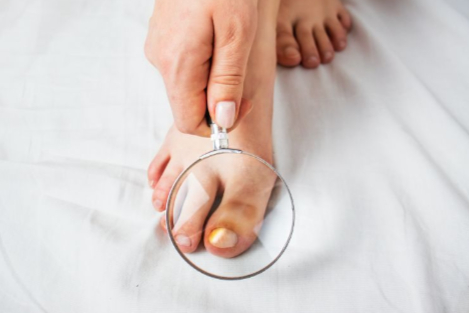Hair and Nail Concerns

Medical Dermatology
Hair Loss
Hair loss, medically known as alopecia, is a common condition that can affect both men and women of all ages. There are various types of hair loss, including androgenetic alopecia (male and female pattern baldness), alopecia areata (patchy hair loss), telogen effluvium (temporary hair shedding), and more. The underlying causes of hair loss can be diverse, ranging from genetics and hormonal imbalances to stress and medical conditions. Common treatments for hair loss encompass topical medications, oral drugs, PRP (platelet-rich plasma) injections, low-level laser therapy, and hair transplant surgery. It is essential for individuals experiencing noticeable hair loss to consult a dermatologist, a specialist in skin and hair health, for a proper evaluation and tailored treatment plan. Early intervention can often yield better results in managing hair loss and promoting regrowth, making it crucial to seek professional guidance for this common concern.
Nail Fungus
Nail fungus, or onychomycosis, is a fungal infection of the nails, most frequently affecting the toenails. The cause of nail fungus is often attributed to fungus but can also result from yeasts or molds. It typically begins as a small white or yellow spot under the nail, which can then spread and cause the nails to become discolored, thickened, brittle, and crumbly. Other conditions can cause similar nail changes, such as psoriasis, eczema, or injury. Diagnosis is often confirmed through clinical assessment and can be further validated by nail clippings or cultures, which allow identification of the specific causative agent.
Treatment options for nail fungus vary in their effectiveness and approach. Topical antifungal medications are available over the counter or by prescription; they are generally more effective for mild cases. Oral antifungal medications are often considered for moderate to severe infections, as they can reach the fungus through the bloodstream. However, they may have side effects and require regular monitoring. In recent years, laser therapy has emerged as a treatment option, which uses laser light to target and kill the fungi. While promising, its long- term efficacy is still being studied. In severe or resistant cases, surgical removal of the infected nail may be recommended. Effective treatment often requires persistence, as nail fungus can be stubborn to eliminate, and recurrence rates approach 30% with any method of treatment.

From traditional medical
skin care to cosmetic
services
We understand that your skin is unique, and we tailor our treatments to your specific needs, delivering the highest level of care and expertise. With a reputation for excellence and a focus on enhancing your natural beauty, Grosse Pointe Dermatology is the premier choice for those seeking top-tier dermatological services in a setting of utmost refinement and sophistication. Your journey to healthier, more radiant skin begins here.
